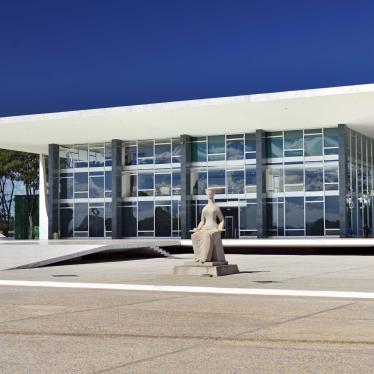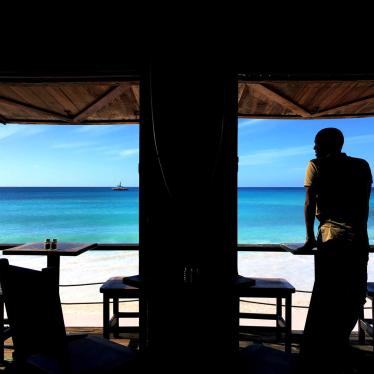Costa Rica became the first Central American country to allow same-sex marriage on May 26. This is no small political feat in a country where the issue divided voters in the 2018 presidential race, and in a sub-region that is markedly religious and socially conservative. Earlier this month, lawmakers even came to physical blows around an unlikely legislative motion to delay the constitutional court’s 2018 ruling to allow marriage equality from taking effect.
Costa Rica’s laudable vindication of the rights of same-sex couples has regional significance. It represents a profound respect for the country’s international obligations and the institutions to which it is a party.
In 2016, Costa Rica asked the Inter-American Court of Human Rights to interpret the scope of the right to privacy, the right to a name, and the right to equal protection under the American Convention on Human Rights. In a landmark 2017 opinion, applicable to 23 states parties, the regional court ruled that all rights applicable to the family relationships of heterosexual couples should also extend to same-sex couples.
Then, in 2018, the Costa Rican constitutional court ruled in favor of marriage equality, buttressing its arguments with the Inter-American opinion. It gave the legislature 18 months to pass implementing legislation. May 26 was this court-ordered deadline after which point the statutory impediments to same-sex marriage in the Family Code became void and same-sex marriage legal.
Since Costa Rica’s same-sex marriage decision, Ecuador’s constitutional court followed suit, ruling in favor of marriage equality in 2019 and supporting its reasoning with the Inter-American decision. Ecuador’s ruling furthered what has been a remarkable wave of progress in Latin America, where six countries now provide for equal marriage—the others are Argentina, Brazil, Colombia, and Uruguay, whose progress on same-sex marriage predates the Inter-American decision. In Mexico, 18 states and the federal district have marriage equality, while in the other 13 states same-sex couples can marry but need a court injunction.
But the Inter-American Court’s decision went beyond the question of marriage. In 2016, Costa Rica also asked the Court for guidance on the Convention’s standards for legal name recognition. The Court ruled that not only do people have the right to change their name, but that states must establish efficient and inexpensive procedures for people to change their name, image, and gender on official documents based on self-identification. In June 2018, Costa Rica’s president signed a directive and decree ordering government agencies that issue official documents to implement this standard. Again, Costa Rica demonstrated its commitment to rights and regional mechanisms.
Other countries have also heeded the Inter-American Court’s standards on legal gender recognition, at least for adults. In 2018, Brazil’s Supreme Court ruled that the government could no longer require transgender people who want their name and gender marker on identification documents changed to undergo medical procedures or to subject their decisions to judicial review. In 2018, Uruguay also passed a comprehensive gender identity law based on self-identification.
Today, five Latin American countries have legal gender procedures in line with the Inter-American Court decision— Argentina and Colombia are the others. In Mexico, eight states and the federal district have legal gender recognition, and in November the Supreme Court ruled that legal gender recognition should be extended to all Mexicans.
Some states parties to the Inter-American Court have only partially met the regional standards, or not at all. In Chile, a Constitutional Court ruling in April denied same-sex couples access to civil marriage. While Bolivia passed a gender identity law in 2016, it demands that an applicant pass a psychological exam, which the Inter-American decision specifically highlighted as a pathologizing requirement. Apart from Costa Rica, other countries in Central America and the Caribbean have made virtually no progress on carrying out the Inter-American decision, and in the Southern Core, Paraguay lags notably behind in comparison to its neighbors’ legal advances.
Costa Rica’s joining the ranks of rights-respecting countries in the region when it comes to lesbian, gay, bisexual, and transgender (LGBT) people should serve as an inspiration for other countries in the region, where equality should be the norm. As countries in the Western hemisphere wrestle with same-sex marriage and legal gender recognition, they should remember that state-sponsored discrimination of LGBT people, including by omission, fuels their economic marginalization and abuse.
Costa Rica has had the courage to tackle these issues and join the regional push for equality. Other countries should follow suit.








